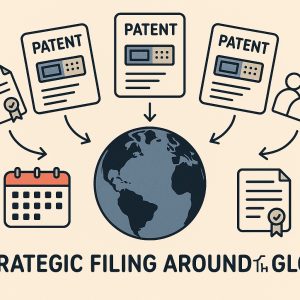-
Home / News
News
-
Read More
When inventors publicly disclose their inventions before filing a patent application, they often worry about losing the right to patent their ideas. This is where the concept of a grace period becomes crucial. The grace period allows inventors a window of time after public disclosure to file a patent application without forfeiting their rights. However, the rules for grace periods vary significantly across countries.
-
Read More
After years of watching patent attorneys argue over whether you need to check the description when a claim seems "clear enough," the EPO's Enlarged Board of Appeal has put an end to the debate. Their June 18, 2025 decision in Case G 0001/24 is refreshingly straightforward: always look at the description and drawings when interpreting claims for patentability.
-
Read More
Patent conflicts of interest aren't just abstract compliance issues—they're real problems that can kill deals, end careers, and cost companies millions.
-
Read More
The intellectual property landscape is definitely experiencing a startup revolution. With global patent filings hitting record highs in 2023, driven by breakthroughs in AI, green tech, and healthcare, startups are no longer just playing defense—they're setting the rules of the game.
-
Read More
Protecting your innovation is essential, but traditional patents aren't always the right answer. Their strict requirements and high costs can be prohibitive, especially for early-stage innovations, startups or those with brief market lifespans. Here are two alternative protection methods worth considering.




